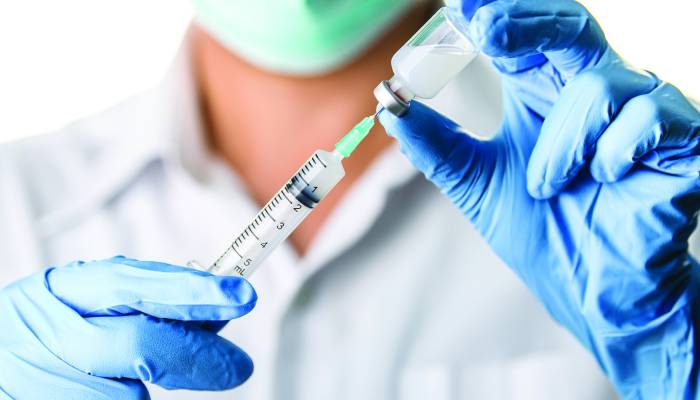
Muscat: Oman has entered into partnerships with many organisations to ensure speedy supply of COVID-19 vaccines in the country, a senior official at the Ministry of Health has said.
Negotiations are also underway with other bodies to procure additional doses of the vaccines, which will be distributed across the country per a national plan devised by the ministry.
“An agreement has been entered between the Government of Oman, Pfizer and the Vaccine Alliance (GAVI) on the supply of quantities of the vaccine to cover almost 20 percent of the Sultanate’s needs,” he said. “This will ensure we obtain the required quantity, effective from the last quarter of 2020 provided we regularly receive doses until the last quarter of 2021.”
“Categories of people targeted for the vaccine are expected to undergo vaccination immediately after it has been received,” he went on to say. “The Ministry of Health has already set up a national plan to cover the various categories of people needing vaccination on priority basis in all the governorates of the Sultanate.”
The official explained: “Direct negotiations are currently ongoing with a number of vaccine manufacturing companies such as Oxford/AstraZeneca to ensure we get the rest of the required quantities. The Ministry of Health is periodically evaluating the epidemiological condition of COVID-19 to identify the strategies and priorities to provide the vaccine to the required categories of people, depending on how the pandemic develops.”
Providing an update on the latest development in global efforts to search for a vaccine, he said products from seven companies had reached the third stage of trials.
They include doses from Oxford/AstraZeneca, CanSino Biologics, Sputnik V, Sinopharm, Pfizer and Moderna.
The creators of the Oxford/AstraZeneca, Pfizer, and Moderna vaccines have announced their success, on the basis of their safety, quality and efficiency, which range from 70 to 95 per cent.
It is expected that these vaccines will be given approval by bodies such as the Food and Drug Administration (FDA), the European Medicines Agency (EMA), and the World Health Organization (WHO). Vaccine delivery across the world is expected to begin by December 2020.
“Due to the spread of the COVID-19 pandemic worldwide, a vaccine could be one of the most reliable methods to curb it,” explained the Ministry of Health official. “There are over 300 companies currently looking into manufacturing the vaccine. With the increase in demand for the vaccine, and in light of the difficulty in providing it to everyone in the quantities required, the WHO has identified the top category of people who require the vaccine.”
“The Sultanate, represented by the Ministry of Health has also identified the top priority of categories of people to vaccinate,” he said. “We have approved a strategy to cover 60 percent of the total number of people in these categories to curb the spread of the pandemic, after taking into account the result of the fourth stage of the National Serological Survey.
The official explained: “As such, almost 40 percent of people in the category of those most likely to suffer from infection, as well as the associated risks and complications, include front line personnel, those with chronic diseases, the elderly, and people with poor immunity, which brings the total number of people targeted for vaccination to 1.8 million people at two doses a person, which amounts to a total of 3.6 million doses.”
“The cost of the vaccine is likely to be between $10 and $40 (OMR4 to OMR16) per dose which varies according to the manufacturing technology used and the availability of supply at the moment,” he revealed, adding that in addition to consultations with GAVI, Oman had also opened direct negotiations with companies manufacturing the Oxford/AstraZeneca, Pfizer and Moderna vaccines.